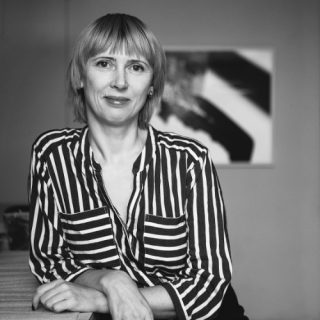15/05/2024

A record number of 470 artists or artist groups applied for the open call of the 9th Tallinn Applied Art Triennial. Among the applicants, 28 artists were selected whose works will be exhibited at the exhibition The Fine Lines of Constructiveness, opening in October this year at Kai Art Center. Applications for the triennial’s satellite programme are open until the end of May.
According to Maret Sarapu, the curator of the exhibition, the open call gave a great overview of what is current on the art scenes in the Nordic and the Baltic art fields. “Fascinating experiments with material, slow technologies, finding new use to forgotten or marginal materials definitely stood out,” said Sarapu. The highest number of submitted applications presented installations, there was also a considerable number of works of textile and fibre arts.
In total, 28 artists or groups were selected for the main exhibition of the triennial with works addressing the notion of constructiveness in a way that spoke to the curator the most. Selected artists include (in alphabetical order): Karin Roy Andersson (Sweden), Riikka Anttonen (Finland), Ieva Baltrėnaitė-Markevičė (Lithuania), Sofia Björkman (Sweden), Per Brandstedt (Sweden), Vincent Dumay (Sweden), Signe Fensholt (Denmark), Hanne Haukom (Norway), Liisa Hietanen (Finland), Severija Inčirauskaitė-Kriaunevičienė (Lithuania), Kati Kerstna (Estonia), Lauri Kilusk (Estonia), Karel Koplimets (Estonia), Arja Kärkkäinen (Finland), Krista Leesi (Estonia), Alves Ludovico (Finland), Jennie McMillen (Sweden), Anda Munkevica (Latvia), Kadi Pajupuu (Estonia), Anu Penttinen (Finland), Tiina Puhkan (Estonia), Saara Renvall (Finland), Vilde Rudjord (Norway), Taavi Teevet (Estonia), Margit Terasmees (Estonia), Ketli Tiitsar (Estonia), Linda Vilka (Latvia) and Ellisif Hals, Yuvia Maini and Cassius Lambert (Sweden and Norway) presenting a collaborative work.
For this edition of the triennial, application was open to artists from the Baltic and the Nordic countries. Among these, Finland was the most active with 118 applications, followed by 102 from Estonia, 81 from Sweden, 64 from Norway, 40 from Latvia and 39 from Lithuania. More modest interest was shown from Denmark and Iceland and in numerous cases, groups were made up of artists from several countries.
The main exhibition of the triennial, entitled The Fine Lines of Constructiveness takes place at Kai Art Center from 5 October 2024 until 16 February 2025.
As in previous years, the triennial is accompanied by a satellite programme consisting of exhibitions, performances, installations and other events that link to the theme of this year’s triennial and highlight applied art and contemporary craft in a broader sense.
Please submit information regarding potential events for the satellite programme no later than 31 May 2024 by filling out this form (LINK).
Tallinn Applied Art Triennial is an international applied art event, established in 1997 with the aim of supporting and empowering the development of the field of applied art and contemporary craft.


